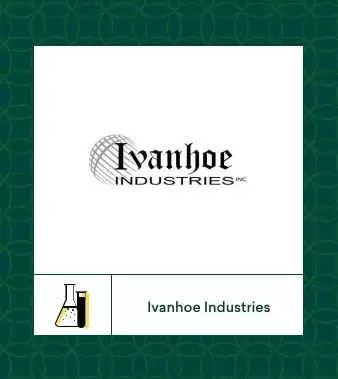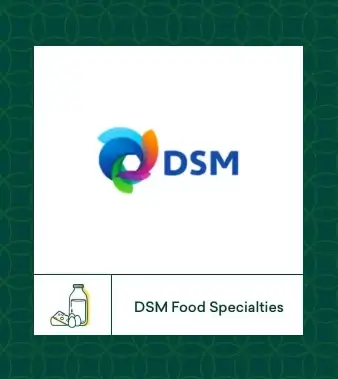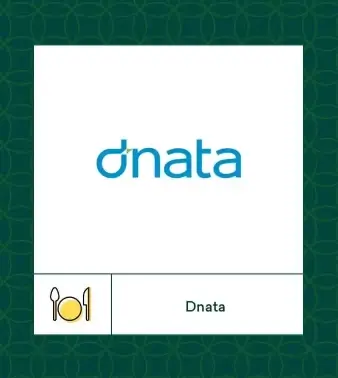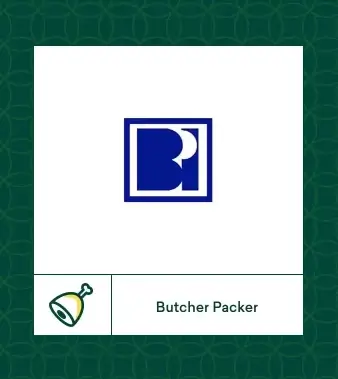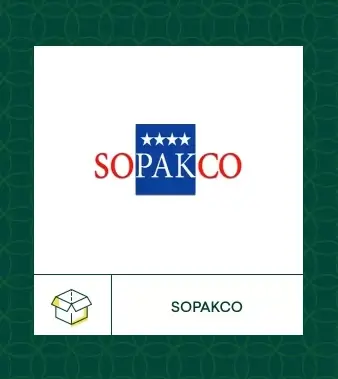Halal Cosmetics Certification
Tap into the growing halal cosmetics market by certifying your cosmetics and personal care products with AHF trusted by top brands worldwide for over 40 years. Our internationally recognized halal certification ensures your products meet the highest halal standards:
- Trusted Halal Certification for Cosmetics in the USA
- Boost Brand Trust and Global Reach
- Seamless Integration with Existing Quality Systems

AHF will process your halal certification application free-of-cost.
Halal Certification 101: Video Explainer
1 |
Application
|
| The American Halal Foundation (AHF) will process your application. Your designated account executive will guide you through the application process to determine the halal status of the facility and its products. | |
2 |
Audit
|
| Your Account Executive will schedule a halal audit on a mutually convenient day. The audit typically lasts 4 hours and includes a training session for the employees who will be responsible for overseeing the halal production. | |
3 |
Halal Certification
|
|
🎉 Congratulations Upon the successful completion of the halal audit, your products and facility are now officially halal certified and recognized as such internationally. You may add products or facilities at any time by simply contacting your Account Executive. |
|
Halal Certification Requirements for Cosmetics
| Requirement Category | Specific Requirement |
|---|---|
| 1.0 Ingredient Compliance |
All ingredients must be free from haram substances (e.g., pork, non-halal animal derivatives, ethanol). INCI names must be provided for each ingredient. Halal certificates or declarations required for all raw materials. |
| 2.0 Animal-Derived Ingredients | Any animal-based material must come from a halal-slaughtered source with traceable documentation. |
| 3.0 Alcohol Restrictions | Ethanol and other intoxicating alcohols are not permitted. |
| 4.0 Cross-Contamination Control | If shared lines or equipment are used, full cleaning and sertu (ritual cleansing) must be performed. |
| 5.0 Manufacturing Practices | Facility must have SOPs for segregation, cleaning, and halal compliance. |
| 6.0 Traceability & Documentation | Full traceability of batches, supplier records, cleaning logs, and production records is required. |
| 7.0 Change Management | Any changes in ingredients, suppliers, or processes must be reported and re-approved. |
| 8.0 Ongoing Compliance | Regular surveillance audits and document updates are required to maintain certification. |
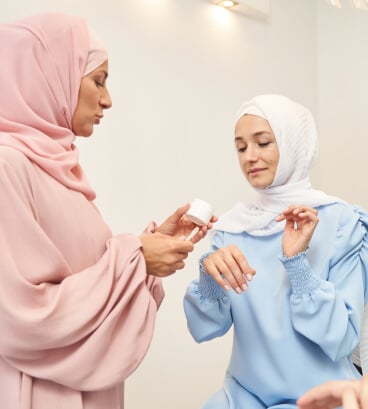
What are Halal Cosmetics & Personal Care?
When ascertaining qualification of cosmetics & personal care products, all ingredients must be compliant with halal, but some ingredients require halal certification by an internationally accredited halal certification agency.
For example, lipstick can be consumed while eating or drinking. Therefore, if the lipstick contains ingredients that are considered haram—such as non-halal animal derivatives or ethanol, anyone who accidentally ingests the lipstick has just consumed something haram.
For cosmetic products to be considered halal, they cannot contain certain ingredients. In addition, any ingredients with non-halal animal derivatives are strictly prohibited. Additionally, ethyl alcohol or any substances that may be detrimental to someone’s health should not be used for the product to be considered halal certified.
How to Obtain Halal Certification with a 3rd-Party Manufacturer?
From startups to established internationally recognized brands, many companies use a contract manufacturer to produce their products to capture efficiencies. Specifically, using a contract manufacturer may yield better cost structures, higher scalability, better supply chain efficiency, and better quality.
Many companies reach out to AHF seeking guidance on navigating the certification of their brand manufactured by a 3rd party. This specifically designed certification process serves as an additional layer of quality assurance for the manufacturer’s brand and customer commitment, creating a synergistic value for both parties.
Below are the main roles each party would play to maintain a halal program:
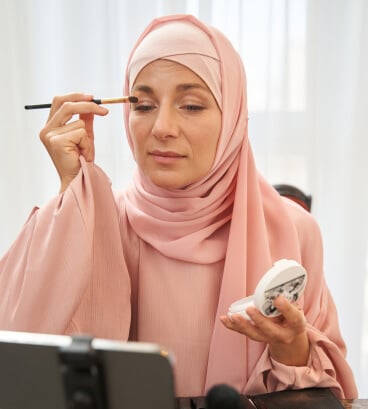
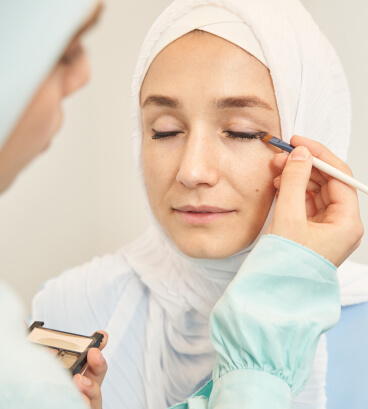
Contract Manufacturer:
- Maintain an independent “Internal Halal Committee” responsible for overseeing halal production
- Sign the Halal Agreement that defines the parameters of halal certification that are to be adhered to
- Report any material changes to suppliers, ingredients, or production processes to AHF.
Private Label Brand:
- Maintain production with approved and registered halal facilities of the halal program
- Ensure halal compliance of all labels
- Sign the Halal Agreement that defines the parameters of halal certification that are to be adhered to
Benefits of Halal Certification for Cosmetic Brands
Rapid Market Growth & Consumer Demand
Halal Is Not the Same as Vegan
Missed Opportunity for Non-Halal-Aware Brands
The AHF Difference
American Halal Foundation (AHF) is a leading globally accredited Halal certification provider—with over $1 Billion + in revenue growth achieved by businesses through its certifications.

Universal Consumer Acceptance
The north star of AHF certification is Universal Consumer Acceptance. AHF uniquely certifies to the highest halal standards acceptable to all 2 billion halal consumers.


Internationally Accredited
AHF is internationally accredited and globally accepted. Learn more here.


Client Service
You will receive dedicated account executives dedicated to your success in achieving halal certification and beyond.



Wide Scope
AHF covers every applicable industry, from yogurt to pharmaceuticals, with our halal certification services. You can learn more here.


Efficient and Dynamic Processes
From the application to adding new products to your program, AHF has designed its processes to save you as much time as possible.


Integrative Approach
You have existing quality systems that may meet some halal program objectives. AHF removes the redundancy and seeks to integrate with your systems where possible.

Testimonials
Get in touch.
Get in touch with AHF to explore or learn more about obtaining halal certification for your products. Call our U.S compliance team at +1-(630)-759-4981 or directly qualify your products for halal here.

FAQ
What is halal certification?
Halal certification is an independent assessment and determination of a product’s compliance with the international halal standards adhered to by 2 billion consumers globally. To obtain halal certification: get in touch.
Who conducts halal certification?
What is halal?
What is a broad guideline for assessing the qualification of a product as “halal”?
The halal philosophy can be understood in simple terms with the following acronym; “Everything is halal except ABCD IS haram.”
A- Alcohol (ethyl) and all types of intoxicants/drugs
B- Blood – flowing or congealed
C- Carnivorous animals
D- Dead meat – meat that is not slaughtered according to Islamic slaughtering rites
I- Food immolate unto idols
S- Swine and all swine derivatives
Does AHF have any application fees for the qualification of halal products?
How long does the halal certification process take?
Are kosher-certified products also halal by default?
How do I obtain halal certification of my product that is manufactured under a private label with a third-party manufacturer?
How much does halal certification cost?
2. The Number of products
3. The complexity of products (from a halal standpoint)
4. Applicant classification (meat processor, private label brand, ingredient manufacturer, etc.)


Apply for Halal Certification
Connect with a halal certification expert.
Apply For Halal Certification
Connect with a halal certification expert.
Helpful Articles
Complete Guide to Gulfood 2026 for Companies
Gulfood 2026 is set to be the biggest edition of the world’s leading food and beverage trade show. With 8,500+ exhibitors, 195 countries, 1.5M + products being exhibited across 12 sectors, Gulfood 2026 will be where global buyers, retailers, distributors, and...
Is Chick-fil-A Halal in the U.S.? An AHF Explainer
Walk into any American city and you’ll see the familiar red script, a line that wraps around the block, and chicken that inspires a kind of fan loyalty most brands can only dream of. Naturally, for millions of Muslim consumers, one question keeps resurfacing: “Is...
Halal Ingredients: Low, Medium & High Risk Matrix
Ingredients and product categories can be ranked by their risk level in the Halal supply chain management, from low to critical. This framework serves as a reference point for assessing ingredient halal risk levels. It’s important to note that risk categories, such as...

